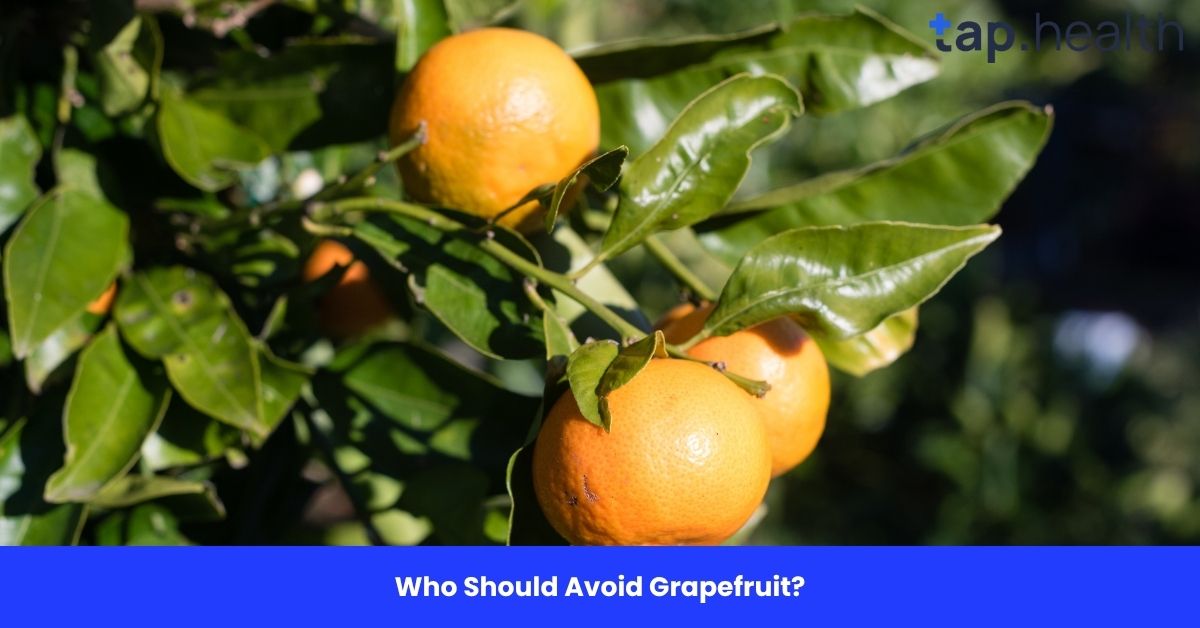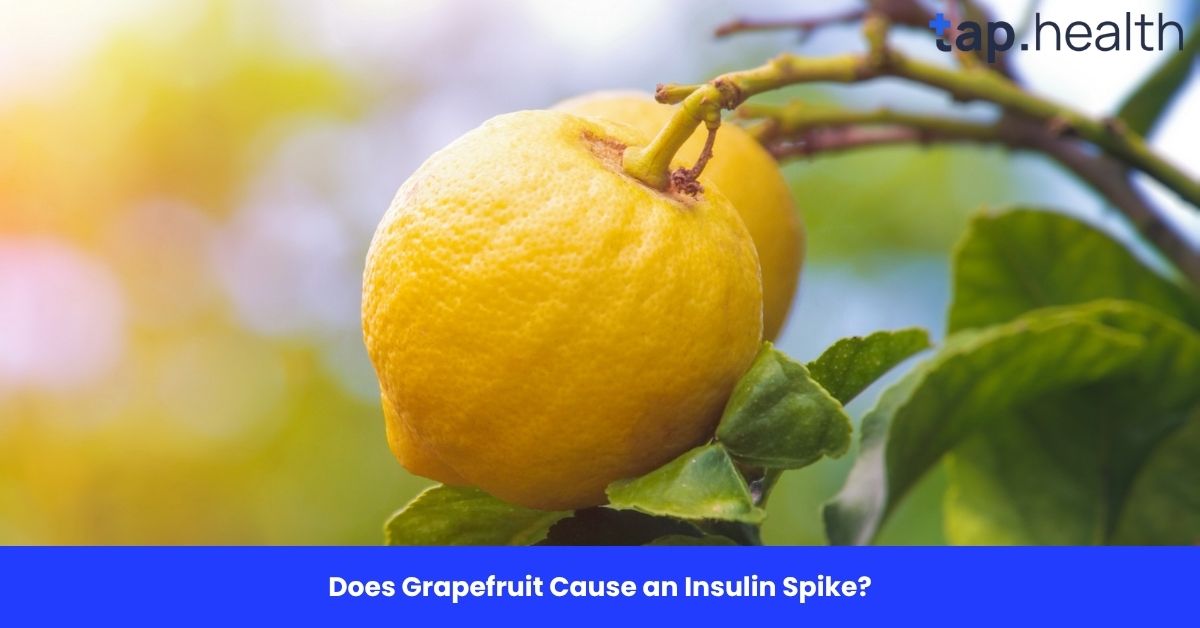Grapefruit is often hailed as a superfood, offering numerous health benefits, including boosting immunity, aiding digestion, and supporting heart health. But, despite its many advantages, grapefruit is not suitable for everyone. Some people may need to avoid it due to potential health risks and interactions with certain medications. In this article, we’ll explore who should avoid grapefruit and why, ensuring you have all the information needed to make safe dietary choices.
What Makes Grapefruit Special?
Before diving into who should avoid grapefruit, it’s essential to understand why this fruit is so widely discussed. Grapefruit is a citrus fruit that is rich in vitamin C, fiber, antioxidants, and other nutrients. It is known for its tangy, slightly bitter taste, which can add a burst of flavor to any dish.
Grapefruit’s health benefits include:
- Rich in Vitamin C: Supports the immune system.
- High in Fiber: Promotes digestive health and helps regulate blood sugar.
- Antioxidants: Help fight free radicals and reduce inflammation.
- Low in Calories: Helps with weight management.
However, grapefruit’s interaction with certain medications can lead to unwanted effects, which is why it’s important to be mindful of its consumption.
Why Do Some People Need to Avoid Grapefruit?
While grapefruit offers health benefits, it can cause complications for some individuals, especially when combined with certain medications. The main reason grapefruit can be harmful to certain people lies in its ability to interfere with enzymes in the liver.
Grapefruit contains compounds called furanocoumarins, which can block enzymes such as CYP3A4 in the liver. These enzymes are responsible for breaking down various medications. When grapefruit is consumed, it can increase the concentration of some drugs in the bloodstream, making them more potent and potentially causing harmful side effects.
This interaction can affect various types of medications, including those for heart conditions, cholesterol, blood pressure, and even some antidepressants. As a result, individuals taking these medications may need to avoid grapefruit altogether.
Who Should Avoid Grapefruit? The Key Groups
1. People Taking Statins (Cholesterol-Lowering Medications)
Statins are commonly prescribed to lower cholesterol levels and reduce the risk of heart disease. However, grapefruit can interfere with the way statins are metabolized in the liver. As a result, consuming grapefruit while on statins can increase the drug’s concentration in the bloodstream, potentially leading to serious side effects such as muscle pain, liver damage, and kidney problems.
Common statins affected by grapefruit:
- Atorvastatin (Lipitor)
- Simvastatin (Zocor)
- Lovastatin (Mevacor)
If you are on any of these medications, it’s best to avoid grapefruit or consult with your healthcare provider to discuss alternatives.
2. People on Certain Blood Pressure Medications
Grapefruit can also interact with medications used to treat high blood pressure, specifically calcium channel blockers. These medications help relax blood vessels and reduce the workload on the heart. Grapefruit can increase the concentration of these drugs, leading to an excessive lowering of blood pressure and potentially causing dizziness, fainting, or even heart problems.
Common blood pressure medications affected by grapefruit:
- Amlodipine (Norvasc)
- Verapamil (Calan)
- Diltiazem (Cardizem)
If you are taking any of these blood pressure medications, it’s important to avoid grapefruit or consult your doctor about potential risks.
3. People on Certain Antidepressants
Some antidepressants, especially selective serotonin reuptake inhibitors (SSRIs) and monoamine oxidase inhibitors (MAOIs), can be affected by grapefruit. These medications are used to treat conditions such as depression and anxiety. Grapefruit may increase the concentration of these medications, leading to side effects like dizziness, drowsiness, or serotonin syndrome (a potentially dangerous condition caused by too much serotonin in the brain).
Common antidepressants affected by grapefruit:
- Sertraline (Zoloft)
- Fluoxetine (Prozac)
- Nefazodone (Serzone)
If you are prescribed any antidepressants, consult your healthcare provider before consuming grapefruit.
4. People Taking Immunosuppressants
Immunosuppressants are medications used to prevent the body from rejecting a transplanted organ or to treat autoimmune conditions. These drugs work by weakening the immune system to prevent it from attacking the body’s own tissues. Grapefruit can increase the concentration of immunosuppressants in the blood, leading to a higher risk of side effects, such as infections or damage to organs.
Common immunosuppressants affected by grapefruit:
- Cyclosporine (Neoral, Sandimmune)
- Tacrolimus (Prograf)
If you are on immunosuppressive medication, it is essential to avoid grapefruit to prevent unwanted complications.
5. People with Liver Disease
Grapefruit can affect the liver enzymes responsible for metabolizing many drugs. People with liver disease or liver dysfunction should be particularly cautious about grapefruit, as the fruit could interfere with drug metabolism and cause toxic levels of medications to build up in the bloodstream.
If you have a liver condition, it is best to consult your doctor before including grapefruit in your diet.
6. People with Allergies to Citrus Fruits
While grapefruit allergies are relatively rare, some people may experience allergic reactions to citrus fruits, including grapefruit. Symptoms of an allergic reaction to grapefruit can range from mild to severe and include:
- Skin rash or hives
- Swelling of the face, lips, or throat
- Difficulty breathing or swallowing
- Itching or redness
If you have a known allergy to citrus fruits, it’s best to avoid grapefruit to prevent an allergic reaction.
Read this: How Many Calories in a Grapefruit?
What Are the Potential Side Effects of Grapefruit?
For those who are not on any medications that interact with grapefruit, the fruit can still have some side effects, though these are relatively rare. Some potential side effects include:
- Heartburn or Acid Reflux: Due to its high acidity, grapefruit can sometimes cause heartburn or acid reflux in sensitive individuals.
- Stomach Upset or Diarrhea: Eating grapefruit in excess can sometimes lead to stomach upset, bloating, or diarrhea.
- Tooth Enamel Erosion: The acidity in grapefruit may contribute to the erosion of tooth enamel over time, especially if consumed frequently without proper oral hygiene.
Can You Still Eat Grapefruit Safely?
If you belong to one of the groups mentioned above, you might need to avoid grapefruit. However, if you’re not affected by any of these conditions, you can still enjoy grapefruit as part of a healthy diet. To safely incorporate grapefruit into your meals:
- Consult Your Doctor: If you are on any medications, always check with your doctor before adding grapefruit to your diet.
- Limit Portion Sizes: Eating grapefruit in moderation can help reduce any potential negative effects.
- Eat Other Citrus Fruits: If you need to avoid grapefruit but still want the benefits of citrus fruits, you can try alternatives like oranges, lemons, or limes.
Frequently Asked Questions (FAQs) on Who Should Avoid Grapefruit?
1. Can I eat grapefruit with high cholesterol?
If you’re taking statins or other cholesterol-lowering medications, it’s best to avoid grapefruit, as it can interact with these drugs and cause harmful side effects. Consult your healthcare provider for alternatives.
2. Does grapefruit interact with blood pressure medications?
Yes, grapefruit can interact with calcium channel blockers and other blood pressure medications, potentially causing an excessive drop in blood pressure. Always consult your doctor if you’re on such medications.
3. Is grapefruit safe for diabetics?
Grapefruit is generally safe for diabetics, as it has a low glycemic index and can help regulate blood sugar. However, if you’re on diabetes medications that may interact with grapefruit, it’s important to consult your doctor.
4. What happens if I eat grapefruit with antidepressants?
Eating grapefruit while on certain antidepressants can increase the concentration of the drug in your bloodstream, leading to side effects such as dizziness or serotonin syndrome. Always check with your doctor if you’re on antidepressants.
5. Can grapefruit cause liver damage?
Grapefruit can interact with liver enzymes that metabolize drugs, which can affect the way medications are processed in the body. People with liver disease should avoid grapefruit or consult their healthcare provider.
6. Are there any other fruits that interact with medications?
Yes, some other fruits like pomelo and Seville oranges also contain compounds that can interact with medications in a similar way to grapefruit. Always check with your doctor about any fruit you consume if you’re on medication.
Conclusion
Grapefruit is a highly nutritious fruit, but it’s not suitable for everyone. Individuals taking certain medications, especially statins, blood pressure medications, antidepressants, and immunosuppressants, should avoid grapefruit due to its potential to interfere with drug metabolism. If you’re unsure whether grapefruit is safe for you, it’s always best to consult with your doctor. By understanding the risks associated with grapefruit, you can make informed choices that align with your health needs.


